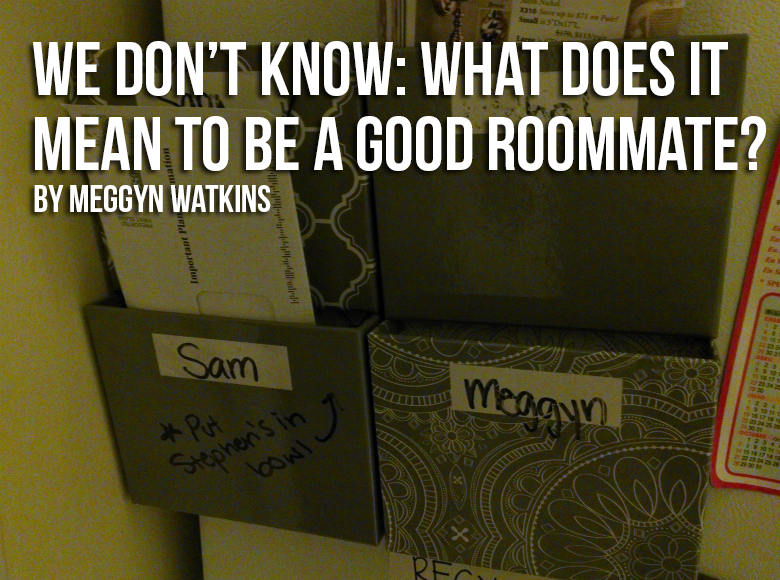I recently stumbled across the awesome How To Adult video below:
https://www.youtube.com/watch?v=JNI1fWTlGwY
To sum up their seven tips for being a highly effective roommate:
Tip #1: Set the rules early on.
Tip #2: Have a monthly status meeting.
Tip #3: Be consistent.
Tip #4: Be generous.
Tip #5: Remember that this isn’t “your apartment.” It’s “your and your roommate’s apartment.”
Tip #6: Keep the lines of communication open.
Tip #7: Prepare in advance for possibly parting ways with your roommate.
I think these are awesome rules for living in peace with a non-related human being. I’ve somewhat successfully lived in my four-bedroom house with a fairly consistent cast of characters for almost three years now, and I think Tip #6 is pretty much the savior of our lives.
But sometimes I wonder if being neat and tidy and nice and polite is good enough to be considered a “good roommate.” Certainly it makes you an unobtrusive cohabitant. But if cohabitant is really as far as the relationship goes: there’s no feeling of family or relationship. So what exactly is the definition of good roommate?
The reason I wonder about this is probably borne from my own insecurity of being a bad roomie. On a typical night, my fiancé and I come home from a long day at work and go straight upstairs to my bedroom, where I do some UE maintenance for a bit, he finishes up some remaining work, then I pass out without remembering to take out my contacts, and he plays video games for a couple hours before shutting off the light.
Other than occasionally running into my fellow house-dwellers in the kitchen or living room, my main interaction is the somewhat-daily photo that I spam them of our kitchen sink. I call it the #NagPic, and they’re unusually nice about my insane neuroticism. (In my defense, it’s incredibly effective at reminding people of their ice cream dish from 3 am last night, but I really don’t recommend it for households of not-incredibly-chill people.)
On the other side of the spectrum, UE writer Emily Knight used to live in this fabulous house where each roommate made dinner once per week and they all sat down and ate together. This absolutely blows my mind. How quaint! How tight-knit! How envy-inducing! Just hearing about it inspired fantasies in my head of 1950s-esque hairdos and someone wearing a cute apron from Modcloth. (I’m not even going to go into all the bike rides, pumpkin carving, and Christmas tree decorating that went on in that utopia of friendship.)
Admirable as it is, it’s just not feasible in my life. Does that make me a bad roommate? Probably not. Does walking upstairs with no acknowledgement of my cohabitants other than “hey” make me a bad roommate? Probably. I think it depends on your definition.
While I’m still deciding whether I’m okay with my definition, what’s yours—and are you okay with it? Share your enlightenment in the comments.

Photo by Sara Slattery

